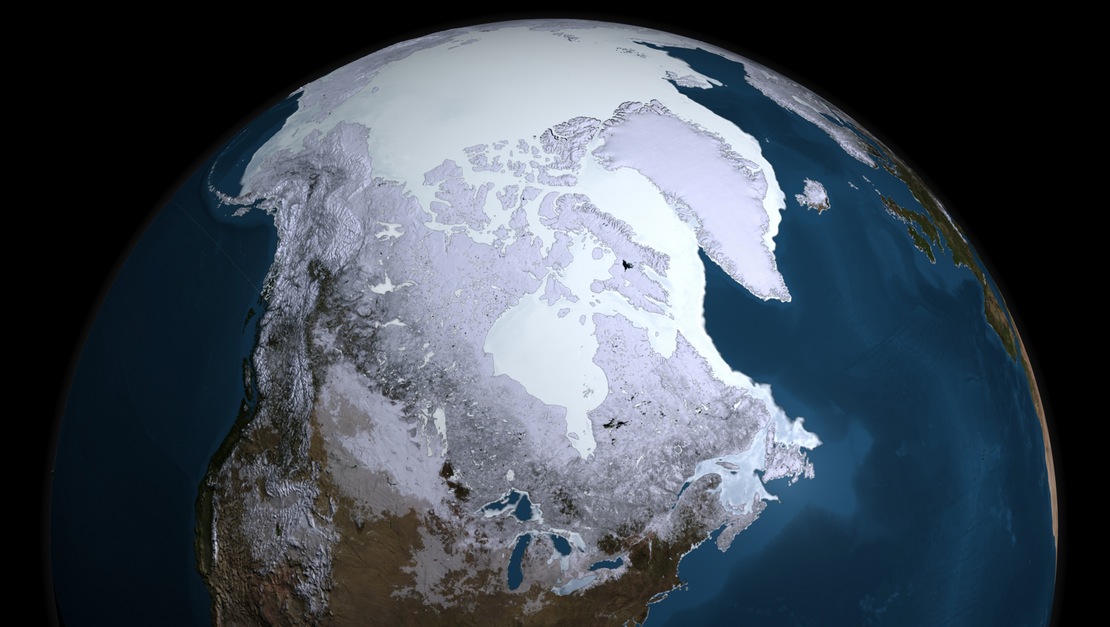Satellite data shows a relatively cool summer in 2013 caused a boom in sea ice volume for the next two autumns. The short-lived growth in sea ice volume suggests the Arctic is much more resilient to global warming than scientists had anticipated, according to a new study.
“The sharp increase in sea ice volume after just one cool summer suggests that Arctic sea ice may be more resilient than has been previously considered,” scientists with the U.K.’s University College in London (UCL) wrote in their study published in the journal Nature Geosciences.
“Between autumn 2010 and 2012, there was a 14% reduction in Arctic sea ice volume, in keeping with the long-term decline in extent,” the scientists wrote in their study. “However, we observe 33% and 25% more ice in autumn 2013 and 2014, respectively, relative to the 2010–2012 seasonal mean, which offset earlier losses.”
Arctic sea ice levels have declined about 40 percent since the late 1970s, a fact which has stoked environmentalist fears about habitat loss for polar animals and for indigenous peoples living in the region. Scientists have warned that a melting Arctic could also dramatically impact weather patterns in the Northern Hemisphere. Indeed, some scientists blame extraordinary winter weather on a warming Arctic.
Earlier this year, scientists warmed the Arctic hit its lowest sea ice maximum extent on record. The news caused observers to once again say the Arctic “death spiral” was in full force. The National Oceanic and Atmospheric Administration (NOAA) recently claimed the Arctic could be ice-free during the summer in the next 25 years.
But the UCL study shows sea ice volume bounced back somewhat after a relatively cool summer. UCL’s satellite data now allows scientists to more accurately measure ice thickness and see how it’s being impacted by a changing Arctic. Now there’s way more Arctic sea ice (and ice that’s thicker) than was present during 2012 — a year that saw extremely low sea ice extent and ice volume.
 Source: European Space Agency, http://www.esa.int/spaceinimages/Images/2015/07/Changes_in_autumn_ice
Source: European Space Agency, http://www.esa.int/spaceinimages/Images/2015/07/Changes_in_autumn_ice
“The summer of 2013 was much cooler than recent years, with temperatures typical of those seen in the late 1990s,” UCL scientist Rachel Tilling said in a statement, being careful to add that this study doesn’t predict a reversal of long-term Arctic ice melt.
“This allowed thick sea ice to persist northwest of Greenland because there were fewer days when it could melt. Although models have suggested that the volume of Arctic sea ice is in long-term decline, we know now that it can recover by a significant amount if the melting season is cut short,” she said.
Arctic sea ice extent for this year, while off to a rough start, is now tracking at near normal levels, according to the National Snow and Ice Data Center — based on the 1981 to 2010 average. Sea ice extent is currently within the standard deviation for the past 30 years.






1 comment
… [Trackback]
[…] Read More on on that Topic: thelibertarianrepublic.com/scientists-arctic-is-more-resilient-to-global-warming-than-we-thought/ […]